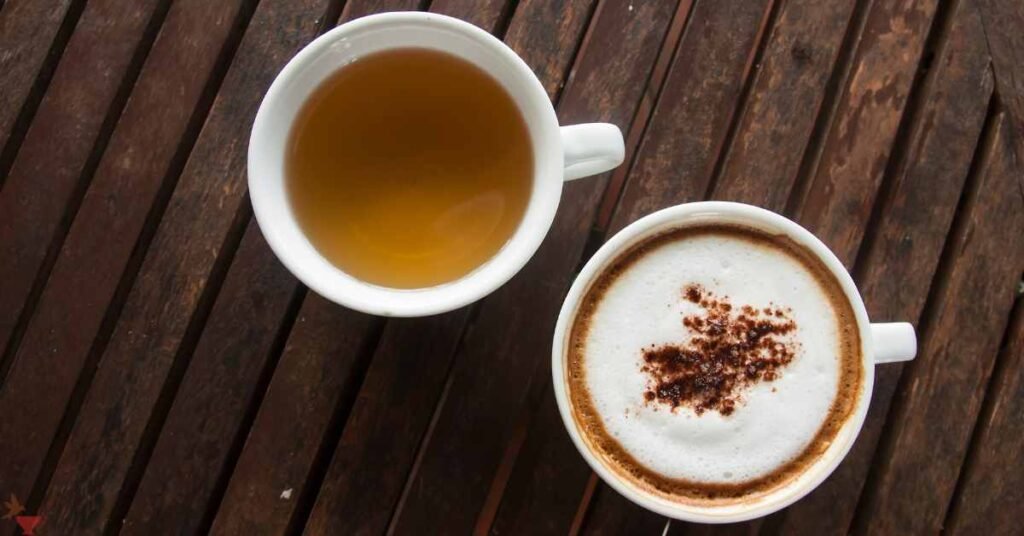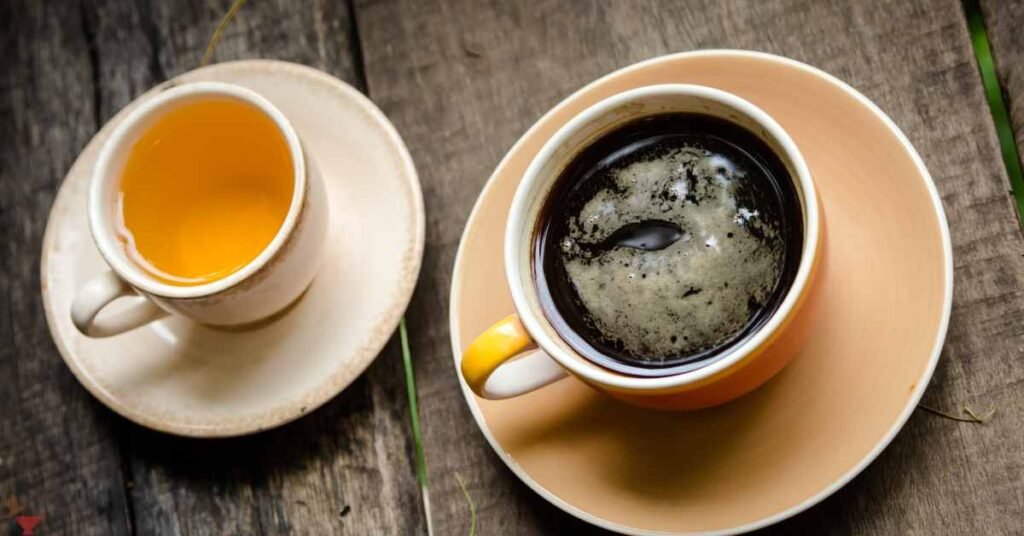The world of beverages is vast and diverse, offering a myriad of choices to suit every palate and preference.
Among these, coffee and tea stand as two of the most popular drinks globally, each with its own rich history, cultural significance, and devoted following.
However, a question that occasionally surfaces in conversations is: Is coffee technically a tea?
To address this intriguing query, we must delve into the origins, definitions, and characteristics of both beverages, exploring their similarities and differences.
Understanding the Basics: What Defines Coffee and Tea?

To determine whether coffee can be classified as a tea, we must first understand the fundamental definitions of both drinks.
Tea: Traditionally, tea is defined as a beverage made by infusing the cured leaves of the Camellia sinensis plant in hot water. The most common types of tea—green, black, white, and oolong—are all derived from this single plant species. Herbal teas, on the other hand, are infusions made from various herbs, flowers, fruits, and spices, but technically, they are not true teas as they do not contain Camellia sinensis.
Coffee: Coffee is made from the roasted seeds, or beans, of the Coffea plant. The two most widely cultivated species are Coffea arabica and Coffea canephora (commonly known as robusta). The beans are roasted to varying degrees, ground, and then brewed with hot water to produce the beloved beverage known for its stimulating caffeine content and rich flavor.
The Preparation Process: Infusion vs. Extraction
One of the key differences between tea and coffee lies in their preparation methods.
Tea Preparation: The process of making tea involves infusing tea leaves in hot water. The infusion process allows the flavors, aromas, and beneficial compounds, such as antioxidants, to be extracted from the leaves into the water. The steeping time and water temperature can vary depending on the type of tea being prepared.
Coffee Preparation: Coffee preparation typically involves an extraction process. The roasted coffee beans are ground to a specific size, and hot water is passed through the grounds, extracting the soluble compounds, including caffeine, oils, and flavors, into the water. This extraction method can vary widely, from drip brewing and French press to espresso and cold brew.
Similarities and Overlapping Characteristics
While coffee and tea have distinct origins and preparation methods, they do share some similarities that might contribute to the confusion about their classification.
- Caffeine Content: Both coffee and tea contain caffeine, a natural stimulant. However, the caffeine content in coffee is generally higher than in tea, with an average cup of coffee containing about 95 milligrams of caffeine compared to 20-60 milligrams in a cup of tea.
- Variety and Customization: Both beverages offer a wide range of varieties and can be customized to suit individual tastes. Tea enthusiasts can choose from a plethora of types and flavors, while coffee aficionados can select different roasts, brewing methods, and additional ingredients like milk, sugar, and syrups.
- Cultural Significance: Both coffee and tea have significant cultural and social importance around the world. Tea ceremonies in Japan, British afternoon tea, and coffee culture in Italy and the Middle East highlight the deep-rooted traditions associated with these beverages.

Distinct Differences
Despite the similarities, the differences between coffee and tea are substantial enough to maintain their separate identities.
- Botanical Origin: As mentioned earlier, tea comes from the Camellia sinensis plant, while coffee is derived from Coffea species. This fundamental botanical difference is crucial in distinguishing the two.
- Flavor Profile: The flavor profiles of coffee and tea are distinctly different. Coffee tends to have a robust, bold, and sometimes bitter taste, influenced by the roast level and brewing method. Tea, on the other hand, offers a more subtle and diverse range of flavors, from the vegetal notes of green tea to the malty richness of black tea.
- Health Benefits: While both beverages offer health benefits, they differ in their specific contributions. Tea is known for its high antioxidant content, which can help reduce the risk of certain diseases and promote overall health. Coffee, too, contains antioxidants but is also associated with improved cognitive function, increased metabolism, and a reduced risk of some chronic conditions.
The Verdict: Is Coffee Technically a Tea?
Based on the definitions, origins, and preparation methods, it is clear that coffee is not technically a tea.
The primary distinction lies in their botanical sources: tea comes from the Camellia sinensis plant, whereas coffee is derived from Coffea species.
Additionally, the methods of preparing these beverages—infusion for tea and extraction for coffee—further differentiate them.
However, the exploration of this question reveals interesting overlaps and shared qualities between the two drinks.
Both coffee and tea play vital roles in global cultures, offer diverse flavors, and provide notable health benefits.
While they remain distinct beverages, their shared popularity and versatility continue to make them staples in the daily lives of millions around the world.
Final Word

In the grand tapestry of beverages, coffee and tea each hold their unique place. While coffee is not technically a tea, the similarities and differences between the two enrich our appreciation for both.
Whether you are a dedicated coffee lover, a devoted tea enthusiast, or someone who enjoys both, understanding the nuances of these beverages enhances our enjoyment and connection to the rich traditions they represent.
So, the next time you sip your favorite cup, take a moment to appreciate the distinct journey of coffee and tea, each with its own story to tell.
MEDICAL DISCLAIMER
Itsnevernotteatime.com cannot and does not contain medical/health advice. The medical/health information is provided for general and educational purposes only and is not a substitute for professional advice.




